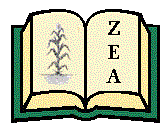
Zea E-Books in American Studies
Files
Download Full Text (508 KB)
Description
Hammon’s Address, published in New York and Philadelphia in 1787, is a simple but eloquent set of Christian advice and reflections. To his fellow Negroes who are enslaved, Hammon advises obedience to masters, honesty and faithfulness, and the avoidance of profaneness. Among his strongest recommendations is that Negroes make every effort learn to read and use that knowledge to study the Bible. Hammon’s focus is on eternity, judgment, redemption, and God’s governance of the world.
Yet Hammon’s appeal is no apology for the slave system, but rather a modulated and astute assessment of the social and power relations between blacks and whites in the early republic: “That liberty is a great thing we may know from our own feelings, and we may likewise judge so from the conduct of the white-people, in the late war. How much money has been spent, and how many lives has been lost, to defend their liberty. I must say that I have hoped that God would open their eyes, when they were so much engaged for liberty, to think of the state of the poor blacks, and to pity us.” Even Hammon’s overtly Christian message contains a very equalitarian strain: there is only one Heaven for whites and blacks, and only one Hell; and “God hath not chosen the rich of this world. Not many rich, not many noble are called, but God hath chosen the weak things of this world, and things which are not, to confound the things that are.”
If Hammon’s address is less radical than some later appeals, it nonetheless embodies a consciousness of racial inequality and a refusal to accept the current situation of Negroes in America as just or as representing God’s will. That his call for change is couched in Christian language and interwoven with a pietistic non-violent ideology, only links his revolutionary message more strongly to a long tradition of black protest that includes, among many others, Dr. Martin Luther King and Cornel West.
Publication Date
1787
Publisher
Zea Books
City
Lincoln, Nebraska
Disciplines
African American Studies | American Studies | Race, Ethnicity and Post-Colonial Studies | United States History
Recommended Citation
Hammon, Jupiter, "An Address to the Negroes in the State of New-York" (1787). Zea E-Books in American Studies. 26.
https://digitalcommons.unl.edu/zeaamericanstudies/26

Included in
African American Studies Commons, American Studies Commons, United States History Commons

